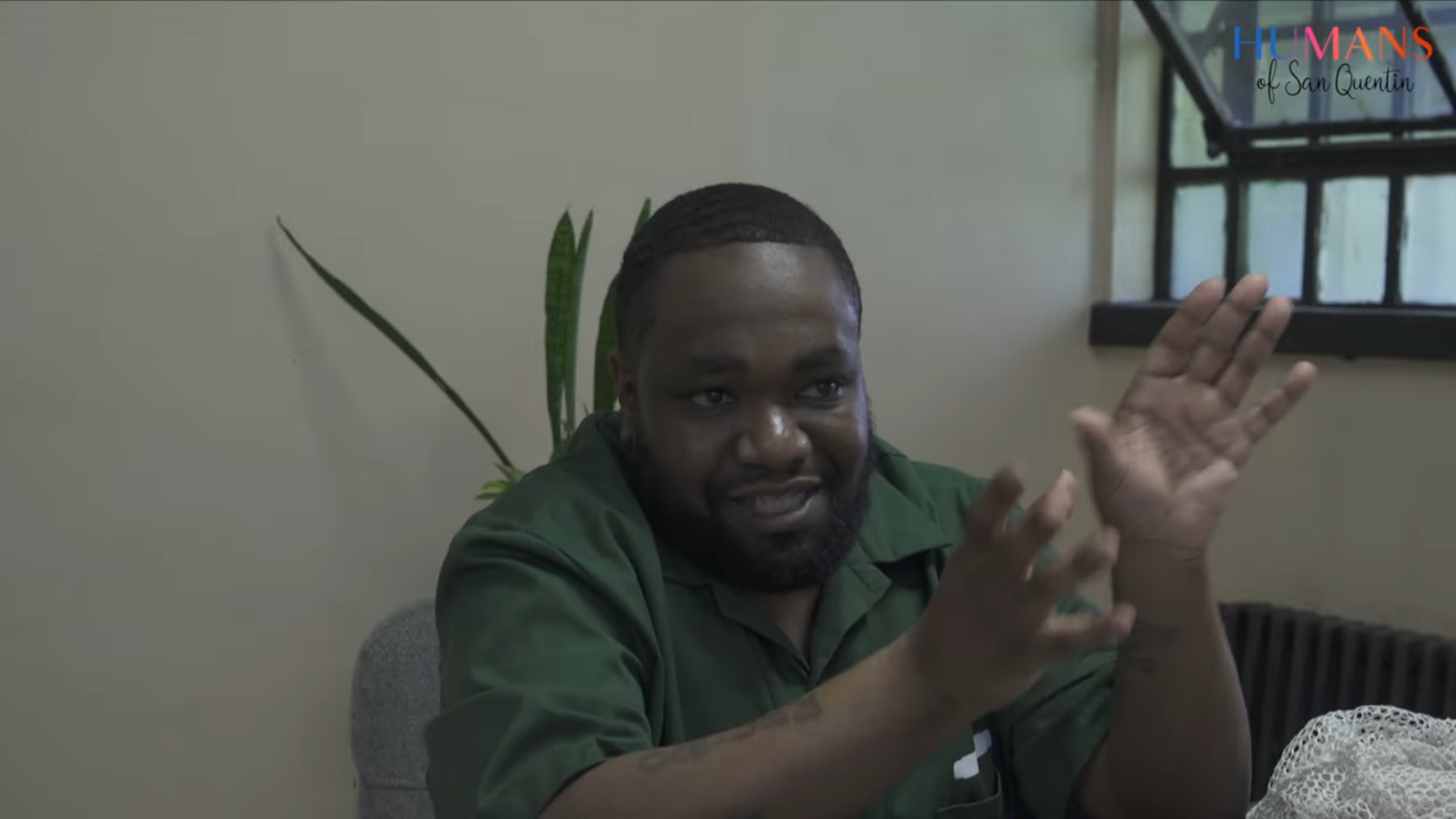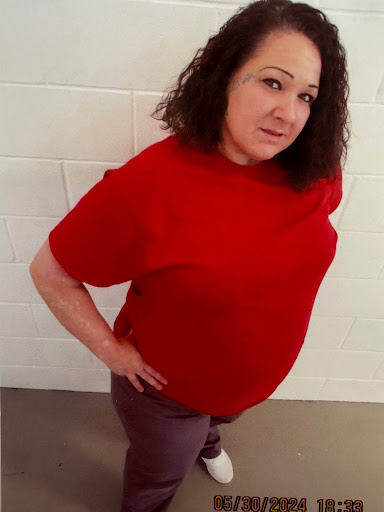Watch the Video:
Video Transcript
Diane: Tell us about you.
Jamel: I finished school and I did a year of college. My grandmother was always on me about school. Go to school, go to school, go to school.
Diane: Tell us about your grandma.
Jamel: She raised me. She took me away from my mother and said to me, “You’re our baby.” My mother tried to get me to live with her, but she was in the Marines and always traveling. I said, “I’m going back to Grandma. I love Grandma, and I love New York.” Because of her insistence on school, I find joy in reading and writing. After school, I had different vocationals.
Diane: Is your grandmother still with us?
Jamel: Yes. I speak to her every week. Sometimes, I double dip, call her twice a day and bug her.
Diane: Have you learned anything about yourself while you’ve been in here that surprised you?
Jamel: Yes. At first, I was stuck viewing the world in one way. After attending college, I learned to be positive, to adapt and to change. I no longer fly off the hinges when I get upset. I went to college for behavior science, and was able to pick up on different behavior patterns and why we do certain things. I was able to see light through a different angle. Why do I do that? Why do people get upset for that? I started analyzing myself and others. They say when you’re driving on a road you don’t just think for yourself, but you gotta think for the next person. That goes to show with the individual traveling the mental road of life.
Diane: How has prison been for you?
Jamel: When I first got arrested at 25 years, I had a mission to go to school, I knew how to read and write well. Which forced me into studying law. I had to gain time back. Twenty-five years is serious. So I studied the law, and was able to get a time reduction of three years. I wasn’t content with that. So I studied harder and gained five more years. That’s all through what they call erudition. Experience gained through books. I was able to master my environment. I’m near the end. Next month I’m eligible for work release. Next year, around the holidays, I’ll be home.
Diane: Holy cow, that’s liberating to hear. What’s next for you?
Jamel: When my time was reduced, I was a little at ease, but I wasn’t at peace, so I started writing books. I wrote House of Brittle Bones, a book of short stories. Once I saw it in print, I started writing again. Got my next one, Kites that Flew published. I was off to the races. Right now I’m trying to get my books into Netflix movies and a couple other places.
Diane: Tell us about home for you?
Jamel: It’s Harlem, New York and I have my brother Giovanni, he owns a recording studio. I taught him how to utilize it. It’s something I can fall back on, the fruits of my labor. I wanna say I have a business partner. You know we can’t own businesses in here, the person I would like to start a business with owns a business called Legacy 06:47. It would help me create bookmarks and different things for my books.
Diane: Is there anything that you want to share?
Jamel: Yes. Humans of San Quentin gives me something to look forward to, it’s not in the box. I’m able to see. It has opened corridors to my mind. I’ve learned we can introduce this to people as a teaching experience. An education should be fashioned for us to be self-sufficient. I think that the Humans of San Quentin gives us a lot of hope and help that we can share with one another. It helps people learn from their experiences. That’s what it’s all about, learning from experiences.
Diane: Is there any advice you have to share?
Jamel: Somebody once told me, to attain success in your writing and your thinking patterns, never think outside the box. I say, “Destroy the box. There is no box!”







I really enjoyed reading this and hearing you, Jamel expressing yourself in words that you use differently, you use language in a new and refreshing way, and I see things differently because of your writing. I am looking for your short stories online so I can read them too.